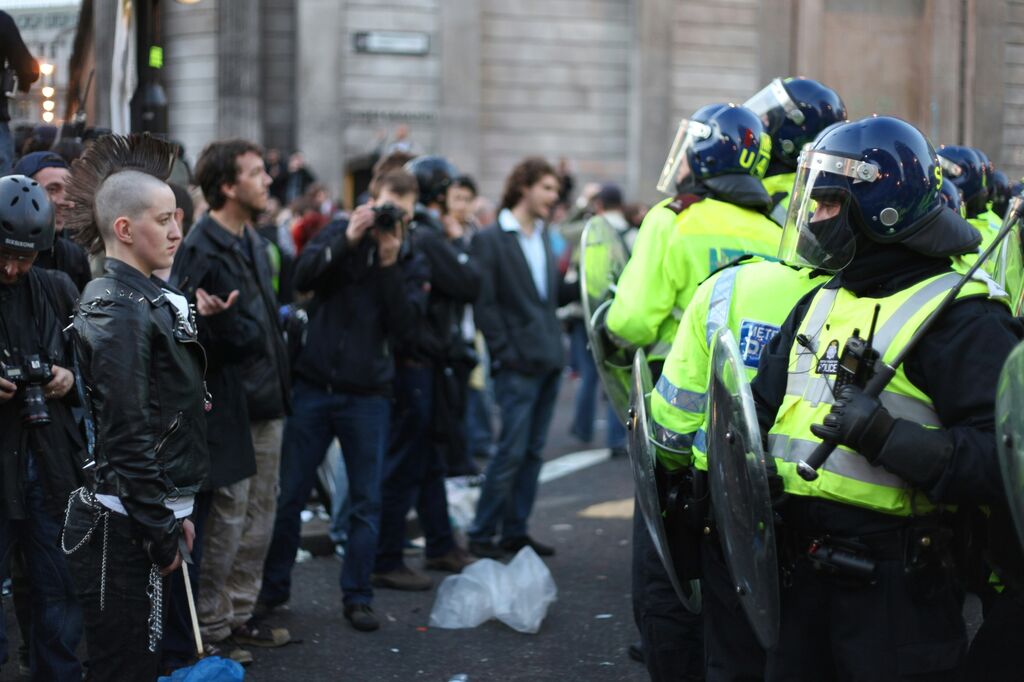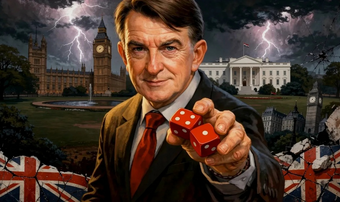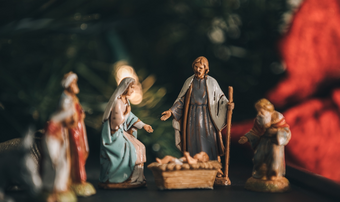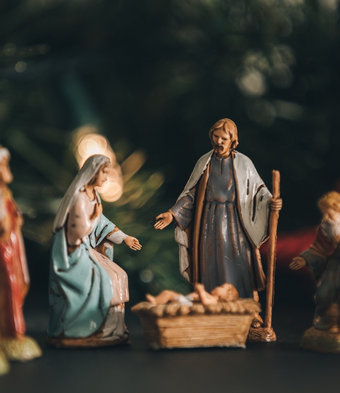The week when Britain showed its darker side

I don’t really remember much about the 2011 London riots. Still at school at the time, I’m not sure I fully understood the significance of what was going on. My main memory is more of confusion, of not really understanding why people were smashing-up shops, attacking police officers, and stealing seemingly at random. And being a millennial, I’m too young to have experienced the violence of the 1980s; the days of football hooliganism and skinheads.
Of course, we’ve seen isolated incidents in the meantime; the famous ‘mostly peaceful’ protests and murmurings of unrest. Indeed, just three weeks ago there were riots in Leeds, prompted by a dispute over four children of a Romani family (nb. not a Muslim family, as had originally been claimed by some on social media) being taken into care by social services. The police have since arrested 27 people.
But sustained, co-ordinated riots, lasting more than a week, like we’ve seen over the last few days? Or riots which have been so targeted at one particular section of society, which have so exposed the fragmentation of our nation? Not in my memory.
For those who haven’t been following what’s happened, the riots were initially triggered in the aftermath of the tragic murder in Southport of three children at a dance class last week.
Rumours swirled that the killer was of Muslim origin (he wasn’t, in fact, his parents are thought to be Christian), and that he was a refugee that had crossed the channel in a small boat last year (he wasn’t that either; although he was of Rwandan descent, he was actually born here in the UK, in Cardiff, almost twenty years ago). For further reflections around how to live in a world of fake news, I’d encourage you to read our blog last week by Ross Hendry.
It was within this maelstrom of fake news and broader resentment within society that the first protests began: the day after the stabbing, a group gathered to protest outside Southport Mosque, including members of the English Defence League (a racist organisation founded by Tommy Robinson). They then confronted and injured more than fifty police officers, burned a police van, and attacked the mosque (which had, to repeat, absolutely nothing to do with the stabbing incident).
The following day, far-right demonstrators clashed with police outside Downing Street. 111 people were arrested. The same evening, there were protests in Manchester, Hartlepool and Aldershot.
In the days that followed, we began to hear of the first incidents of looting, as shops were targeted and their goods ransacked. We read of wide-scale riots organised up and down the country, with predictions that there would be 100 in different locations in a single night. And we have seen videos on social media of clashes with police, now, not just from those on the right.
For some Muslims too, having had several mosques attacked, had now armed themselves to clash with the protestors, and attempted to slash the tyres of the van of a Sky News reporter; indeed, anti-fascist protests have not been pure demonstrations of peace and love either, with one ringleader, a Labour councillor, shouting to the crowd that ‘we need to cut [the protestor’s] throats’.
And as so often occurs when riots occur, some of those involved, who have now ruined their own lives, have absolutely no idea what they are rioting about. Early estimates are that around a quarter of the rioters were under age 21. One photo being circulated on Twitter showed a rioter eating a stolen gingerbread man from the bakery (yes, seriously). Good luck ‘getting your country back’ with that one…
The headlines from the last few days have been utterly grim. Rioters are responsible for hundreds of thousands of pounds of damage, committed against innocent people. Hundreds of policemen (and others!) have been injured; in her witness statement, Merseyside Chief Constable Serena Kennedy described the injuries suffered by members of her force, including “both legs fractured, teeth knocked out, broken jaws, and many other wounds”. She said there was “disbelief that officers had not been killed” during the riots. Perhaps worst of all was the story of some of the protestors actually set fire to a hotel in which migrants were being housed.
In the last couple of days, it feels like a corner has been turned, with the majority of rumoured protests not occurring. And attention will inevitably turn to the inquest: what led to this point? But for now, let me offer some pointers which I hope will be useful to us as Christians.
1. Christians cannot justify rioting
I would rather hope that this would not need to be said, but the only time Christians should be near the scene of rioting is in clearing it up and comforting those affected afterwards. For rioting, disorder and, indeed, violence (other than in extremely unusual cases, such as in ‘just war’ theory), are antithetical to Christian faith.
The scenes we have seen in the last week have been utterly deplorable: scenes of looting, racism and thuggery. Whatever concerns - and we will come onto them later - some of us may have around, say, immigration, rioting is not some sort of justifiable, peaceful protest. It should be roundly condemned by Christians of every stripe.
Paul wrote to the Romans about how Christians should behave alongside those within society, ”Be careful to do what is right in the eyes of everyone. If it is possible, as far as it depends on you, live at peace with everyone” (Romans 12:17-18). Such words are the total opposite of what we have seen from protestors this week.
Indeed, it appears that in their minds, ‘might is right’; they think they are in some sort of war, and have the right to take up arms against those with whom they disagree. I was very struck during my Bible reading this week by the following passage, which felt very apt in the circumstances:
"There are six things the Lord hates,
seven that are detestable to him:
haughty eyes,
a lying tongue,
hands that shed innocent blood,
a heart that devises wicked schemes,
feet that are quick to rush into evil,
a false witness who pours out lies
and a person who stirs up conflict in the community."
(Proverbs 6:16-19)
Those who have ears to hear, let them hear!
Of course, Jesus calls us to a different way. “Blessed be the peacemakers, for they will be called children of God” (Matthew 5:9). Instead of those who look to divide and create fault-lines within society, we are to be those who build bridges and mend broken relationships.
And when it came to his arrest, when Peter drew his sword to fight, Jesus told him, “Put your sword back in its place, for all who draw the sword will die by the sword” (Matthew 26:52). The greatest victory in the history of the world was one not by shows of might or demonstrations of violence, but by sacrifice and the laying-aside of power. This is the way of the cross: not to punish your enemy, but to love them.
The scenes this week have been of chaos; we worship a God who brought order out of chaos. They have been scenes of violence; we worship a God who is the Prince of Peace. And they have been scenes of hatred; we worship a God who is in his very being, Love.
2. We have a duty to speak against racism
At the core of the protests in the last couple of weeks has been racism, particularly against Muslims. Telling people who have lived here all their life to “Go home”, and crying “We want our country back” outside mosques is not acceptable.
It is completely understandable that - particularly within the context of the last year, and the mass protests over Israel-Gaza - there are questions and concerns about Islam. Indeed, at some point, it’s probably a topic for a whole blog.
But to scapegoat the Muslim community as a whole, as has happened in this case, is, quite simply, racist: firstly, there is no evidence that any Muslim had anything to do with the murders in Southport. And regardless of if it had been an individual Muslim at fault, to scapegoat a whole community for the actions of an individual is equally wrong: it is the individual who is responsible, not the community. Indeed, given that the individual in question here seems to be from a Christian background, perhaps we might ask whether the whole Christian community should be scapegoated for their crimes? Of course not.
Rather than beginning our view of Muslims, or any other community, by looking at our differences, the starting point for Christians must always be rooted in the fundamental Biblical truths about our identity: every individual, whether male or female, black or white, Christian, Muslim or anything else, is created “in the image of God”, and of equal, God-given, dignity and worth and value.
During his ministry, Jesus told a parable about a man from a different race and religion. We know it today as the Good Samaritan. It has almost become so well-known that we do not fully appreciate how radical it was at the time; Jews regularly referred to Samaritans as ‘dogs’, they were viewed as religious heretics, and Josephus records that they actually destroyed the Samaritan temple on Mount Gerizim.
The point of the story? It was the Samaritan - yes, the Samaritan! - who was the neighbour to the Israelite. There is part of me that wonders whether, if Jesus had come as a 21st Century Brit rather than a 1st Century Jew, he might have told the story of a Good Muslim, rather than a Good Samaritan! Regardless, Muslims, Hindus, atheists, Christians: we are to view all of them as our neighbours. Jesus’ punchline to the story is “Go and do likewise [as the Samaritan did]”.
And that’s before we even get onto what the Bible says about ‘welcoming the foreigner’. Interpreting Old Testament law is not easy within today’s context (Old Testament Israel is not the same as 21st Century Britain), but at CARE we always want to try and apply Biblical principles to our policy work.
Within Old Testament law, there was a distinction between what we might call ‘resident aliens’ (Hebrew: ‘ger’), who were legally permanent residents of Israel, and what we might call ‘sojourners’ (Hebrew: ‘nekhar’ or ‘zar’) who were only in Israel for a time. The sojourner was not treated as a full citizen; but the resident alien was to be treated in just the same way as any Israelite. For example, the Israelites were forbidden from charging interest to their countrymen and to resident aliens, but they were not forbidden from charging it to sojourners.
Such an example is instructive for us today: where immigrants have become legal, permanents residents of our nation, they are full citizens, just like anyone else, and therefore, are to be treated by us exactly the same as everyone else. There is not a second class of British citizen: all are to be treated equally.
3. We do need to have conversations…but to model grace as we do it
At times in the last couple of years, it has felt like Britain is a powder-keg; there has been frustration, resentment, and even, increasingly, aggression between different communities, just waiting to come to the surface.
Frustration doesn’t just come from nowhere; in some cases, it has begun with understandable questions and complaints, around immigration-levels and integration within society. But enhanced and amplified by the inflammatory rhetoric of certain particularly prominent figures (from both inside and outside government), those frustrations have grown to anger, which has now led to violence.
For these riots are not just some flash-in-the-pan event. It’s indicative of a deep breakdown in relationships within our society: distrust between communities; mistrust of the police; mistrust of the politicians and the governing elite. And unless as a nation we can work out how to fix those relationships, it wouldn’t be surprising to see similar scenes again.
Tackling the rioters with the full force of the law is needed. But it doesn’t fix the underlying difficulties our nation is facing. And if we want to seek “peace and prosperity” in our nation, we are going to have to have some serious conversations at some point, about some pretty uncomfortable topics. After all, no one ever made peace by just telling the other side to shut up and lump it: that only ever breeds resentment. You only ever get there by generous, gracious conversation.
So we are going to have to have a conversation around immigration levels. The Bible does not just teach an open-border policy. And the Conservative government promised in 2010, 2015, 2017, and 2019 that it would reduce the levels of immigration (in the first three of those, to figures in the tens of thousands). Instead, the reverse has happened: the net migration levels are at the highest by far in Britain's history, and considerably higher than they were when we were in the European Union. In 2022, net migration levels stood at 764,000. In 2023, they were 685,000. That is not what people voted for; instead the political establishment promised one thing, and repeatedly delivered another.
We are going to have to have a conversation around Islam, something even Tony Blair recently wrote for the Times was ‘clearly a challenge’. In the last year, hundreds of thousands of Muslims have protested on the streets of London, chanting about Zionists and projecting the message, ‘From the river to the sea’ onto Big Ben. Polling last year suggested that 46% of UK Muslims support Hamas. A mere 25% believed that Hamas had committed murder and rape against Israelis in the October 7th attacks. It’s a challenge that Labour is well aware of after the General Election, in which a number of their candidates were confronted with vicious threats over their stance on Israel-Gaza.
And we are going to have to have a conversation about policing too. If there is a widespread perception in part of society that there is two-tier-policing, simply telling people that there is ‘nothing to see here’, as has happened this week, isn’t going to change people’s minds: they need to see it. Earlier this year, the review was published into the Greater Manchester Police’s inability to protect young girls in Rochdale, in which more than a thousand were sexually abused at the hands of a Muslim gang, who were not dealt with at the time out of political correctness. Just a few months ago, the Metropolitan Police tweeted in support of protestors who were chanting for ‘jihad’ on the streets of London (in the context of the Hamas terror attacks). When the police say they do their jobs without ‘fear or favour’, I believe them. But they shouldn’t be surprised that others don’t.
All of these conversations - and many more besides - are going to be uncomfortable. But as Christians, we need to model how we have difficult conversations: speaking with both grace and truth. We must never demonise those with whom we disagree, and we must never scapegoat or ‘other’ those whom we do not understand, as some high-profile politicians have done in recent years.
Paul wrote to the Colossians: “Let your conversation be always full of grace, seasoned with salt, so that you may know how to answer everyone.” I pray that his words might be instructive to us all.






